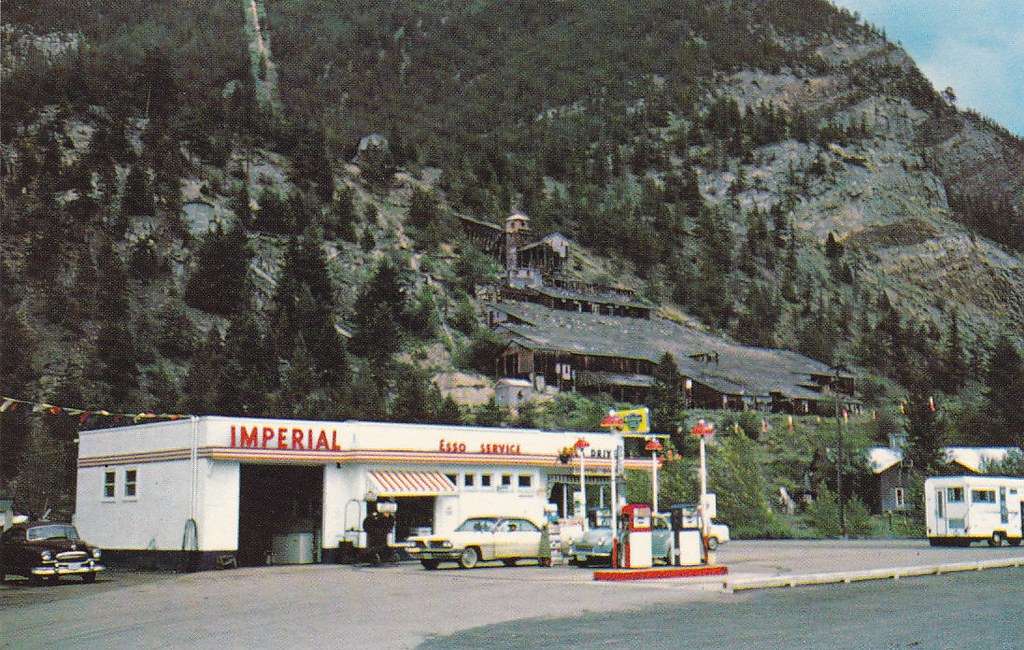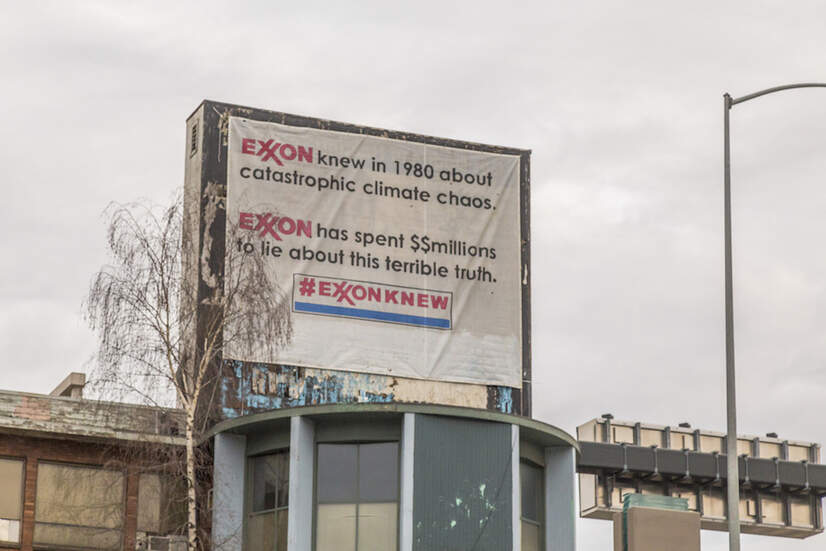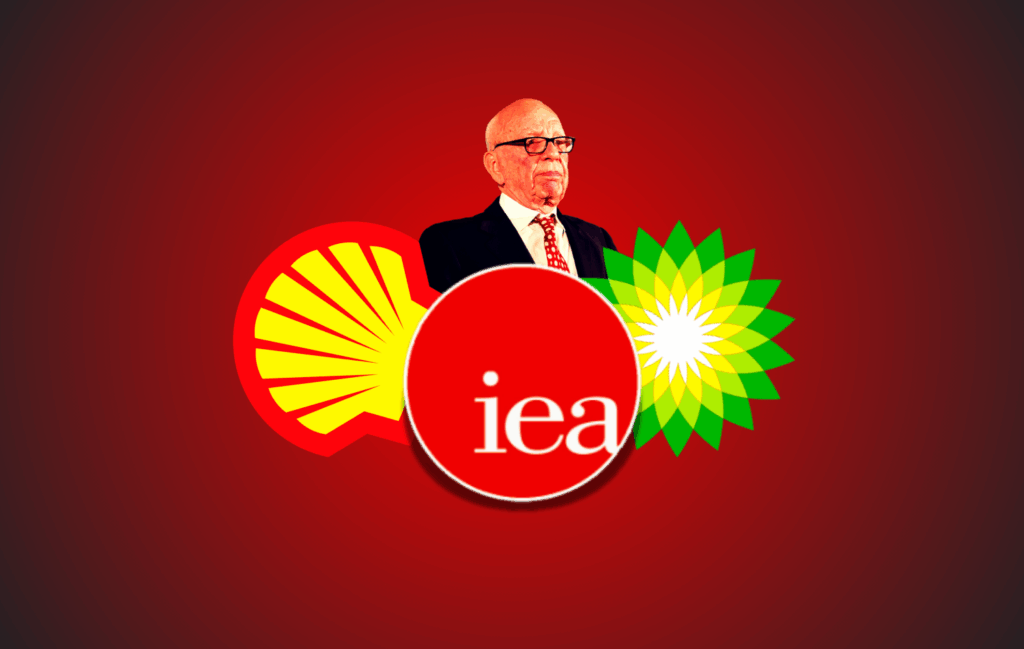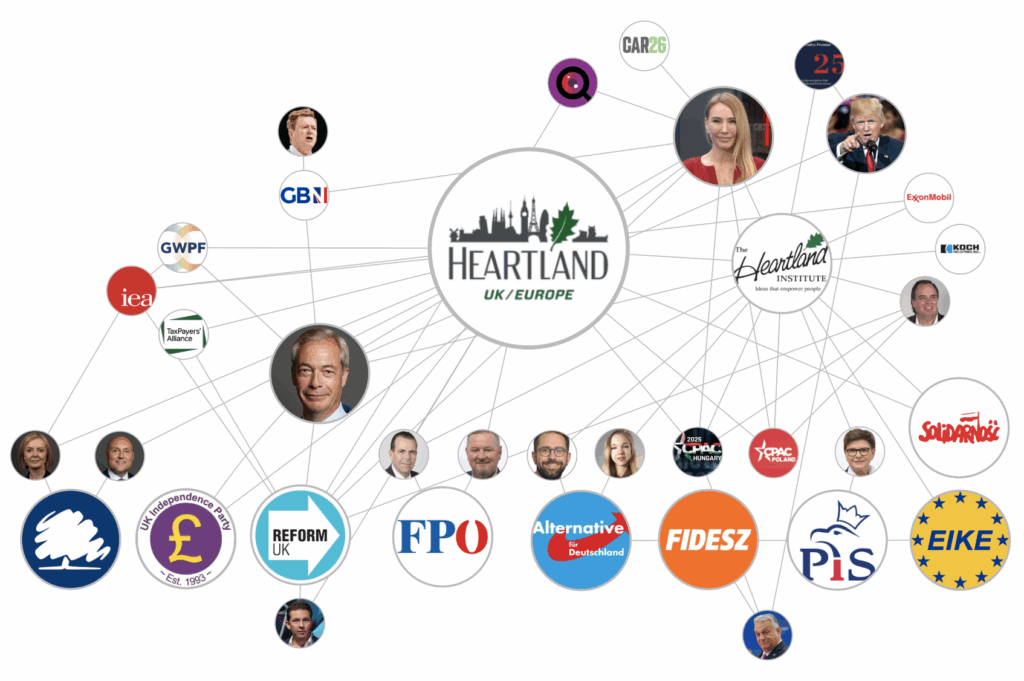It was 1971, less than a year after the world’s first Earth Day, and in Canada an oil giant was worried.
“Public concern regarding environmental problems is being translated into legislation rapidly,” Imperial Oil warned in an annual research planning document dated January of that year. “The present trend in legislation will require substantial expenditures to reduce emissions and waste discharge for all facilities and reduce the impact on the environment of the products we sell.”
“Major contributors to atmospheric pollution are the automotive engine and industrial fossil fuel consumers,” Imperial’s 1971 document reports.
One of the top environmental concerns Imperial described then stemmed from the use of lead in gasoline — prized by refineries as a cheap way to make car and truck engines run more smoothly. And the industry’s public relations efforts on lead seemed to be struggling.
“The varied positions of members of the oil industry on lead-free gasoline have created a complete state of confusion in the public mind on the subject,” Imperial, largely owned by Exxon, wrote in 1971.
Over the following decades, the oil industry lost its battle to keep lead in gasoline, but it may have learned valuable lessons from that fight as public attention turned to another looming crisis caused by fossil fuel pollution — climate change.
Not only would oil and gas companies form coalitions, like the Global Climate Coalition, that could lobby for the industry’s interests on climate in a coordinated way, they would also work to stir up confusion in the public’s mind about the science underpinning climate change, drawing on techniques pioneered by the tobacco industry.
New Canadian archival documents obtained by DeSmog and the Climate Investigations Center add to our understanding of how Imperial’s scientific planning documents and other records initially approached climate change as one of many PR issues — to be addressed mainly with talking points and messaging about the small steps industry was taking to address pollution — but by the end of the 1990s, Imperial had joined the rest of the oil and gas industry in vocally questioning climate science, even as that science became increasingly well established.
#StandardOilKnew
It may seem distant now, but the battle over lead in gasoline was one of the most profound environmental issues of the past century.
Imperial described lead in gasoline as one of the public’s biggest concerns. “Air and water pollution will continue to be at the fore-front of both public and political concern with ecological preservation and noise abatement filling any gaps. The most obvious manifestation of this kind of concern is industry’s program for lead reduction and removal in gasoline and the continuing government pressure for reduced sulfur in fuel oil,” Imperial wrote in a 1971 research planning document.
“The cost to respond to both problems is high,” it added.
As with climate change, oil giants like Standard Oil were aware of the hazards of leaded gas early on. It was known as early as the 1920s that lead was poisonous and could impact the brain. Like Exxon, Mobil, Chevron, and many other oil majors, Imperial Oil is a descendant of Standard Oil. Imperial was retained as part of Standard Oil of New Jersey following America’s trust-busting court rulings, and later split off into its own firm (largely owned by fellow Standard Oil-descendant Exxon).
It was at a Standard Oil New Jersey refinery that some of the first problems with leaded gasoline would become apparent in 1924, when five workers died from their exposure to tetraethyl lead (TEL), the lead additive used in gasoline, as Wired reported in 2013.
Tetraethyl lead, a gasoline additive, was finally banned in the U.S. in 1986. Credit: Steve Snodgrass, CC BY 2.0
Cities in the U.S. began to ban lead additives — but two years later, in 1926, a federal task force composed of industry scientists exonerated the additive, and, based in part on that task force’s findings, oil giants were ultimately allowed to sell leaded gasoline in the U.S. and around the world.
The additive wasn’t banned in the U.S. until 1986 and is now only legal in a few countries.
But along the way it caused major damage to public health and was cited in a 2013 Mother Jones article as one of the causes of a violent crime wave in the U.S. during the 20th century.
Environmental advocates have argued that there are parallels between the oil and gas industry’s response to the issues of leaded gasoline in the past and its approach to climate change in more recent years.
“In the case of leaded gasoline, the oil and gas industry again moved to cast doubt on the science behind lead pollution, and warned of ‘an adverse effect on the nation’s economy,” the Natural Resources Defense Council wrote in a 2011 blog post on the parallels between climate change and lead. “We keep hearing the same old arguments as to why environmental problems are just too hard to tackle.”
As Climate Science Grows More Certain, PR Trumpets Doubt
In the early 1990s, Imperial left a paper trail showing that the company acknowledged much of the science surrounding climate change, though the company’s records from the time also described areas where uncertainty remained. By the end of that decade, the science on climate change (much of it borne out in th current century’s first two decades) had grown more certain — but so too had Imperial’s emphasis on uncertainty.
Early on, Imperial’s climate PR directly acknowledged significant portions of the scientific understanding of climate change.
“Canadians are also becoming increasingly concerned about more subtle issues such as the potential for climate change resulting from increasing concentrations of greenhouse gases in the atmosphere. This could have serious longer term implications for agriculture, forests, the Arctic and for low-lying coastal areas, due to changing sea levels,” Imperial wrote in a 1991 discussion paper on air quality.
Similarly, in a 1991 discussion paper on global warming response options, Imperial acknowledges an “emerging scientific consensus,” noting that “many nations, including Canada, are taking the view that the risks of waiting for further research results before taking action to limit greenhouse gas emissions are too great.”
Roughly a decade earlier, Imperial Oil had described climate science in a document circulated to Exxon’s corporate offices in the U.S. and Europe in clear language. “There is no doubt that increases in fossil fuel usage and decreases in forest cover are aggravating the potential problem of increased CO2 in the atmosphere,” Imperial wrote on the second page of one 1980 report, as previously reported by DeSmog.
And the company’s work was at times viewed as supportive of action to reduce greenhouse gas emissions (though not at the scale and scope that preventing today’s crisis would require). In 1994, Canada’s National Report on Climate Change cited Imperial’s response paper, writing, “A discussion paper by Imperial Oil on global warming response options outlines a detailed action plan. It includes a strong emphasis on energy efficiency in the company’s operations and stresses the need to explore CO2 disposal opportunities further, including the use of CO2 in enhanced oil recovery.”
By the end of that decade, however, Imperial’s public communications shifted to discussions not about how to respond to the risks of climate change, but whether or not it was real.
“One thing is clear in this debate,” Imperial’s then-chairman Robert Peterson wrote in an 1998 article. “There is absolutely no agreement among climatologists on whether or not the planet is getting warmer or, if it is, whether the warming is the result of man-made factors or natural variations in the climate.”
That same year, Exxon, Imperial’s parent company, began funding the Center for the Study of Carbon Dioxide and Global Change (which at various times has also received funding from coal giant Peabody Energy and Koch family foundations). That organization sought to re-brand carbon dioxide, calling it a “[p]owerful aerial fertilizer, directly enhancing the growth of almost all terrestrial plants and many aquatic plants as its atmospheric concentration rises.”
There was also a pronounced disconnect between the way that documents from Imperial’s parent company, ExxonMobil, discussed climate change and the way their public relations efforts discussed the issue, as Harvard researchers Geoffrey Supran and Naomi Oreskes discussed in their 2017 paper published in Environmental Research Letters.
“This discrepancy is most pronounced between advertorials and all other documents,” they wrote. “For example, accounting for expressions of reasonable doubt, 83 percent of peer-reviewed papers and 80 percent of internal documents acknowledge that climate change is real and human-caused, yet only 12 percent of advertorials do so, with 81 percent instead expressing doubt.”
Sign about what Exxon knew about climate change. Credit: John Duffy, CC BY 2.0
ExxonMobil now faces lawsuits by multiple state attorneys general who argue that the oil giant deceived the public, including investors, about the risks associated with climate change. During a two week trial last month, the New York attorney general’s office presented a case that ExxonMobil had effectively kept two sets of books when it came to the impact of climate change on its bottom line, making the business appear to investors to be more profitable over the long term than ExxonMobil’s internal numbers would show. ExxonMobil argues that its internal calculations were revealed to investors in one sentence in a 2014 report.
After the New York attorney general dropped two of the four charges against the company following trial, ExxonMobil also now argues that the attorney general harmed its reputation with the allegations. The attorney general’s office responded in a November court filing that it contunues to assert that ExxonMobil misled investors under the state’s Martin Act and that therefore, the allegations stand. A hearing on that question is scheduled later this week, on December 6.
Meanwhile, a separate lawsuit has been filed by the Massachusetts attorney general’s office, alleging that the firm’s advertisements were deceptive and that the company misled ExxonMobil investors in the state about the risks of climate change, not only to ExxonMobil, but to the overall financial system.
DeSmog has reached out to Imperial Oil for comment.
Check out the rest of DeSmog’s series: Imperial Oil Files: How a Canadian Oil Giant Followed Exxon into Climate Denial and view the entire document archive
Main image: “Postcard: Slim’s Esso, Hedley, BC, c.1964.” Credit: Rob, public domainSubscribe to our newsletter
Stay up to date with DeSmog news and alerts








